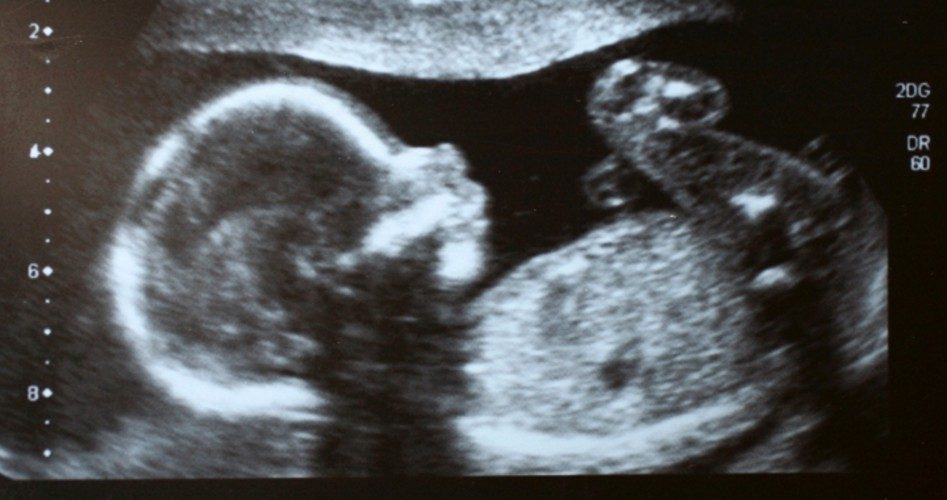
Lawmakers in Missouri have introduced a new pro-life measure that would require both parents to be notified before a minor obtains an abortion.
Current state law requires just one parent to provide his or her consent before a minor obtains an abortion, but under legislation introduced by Republican state Representative Rocky Miller, both parents would have to be notified if a minor intends to terminate her pregnancy, though an abortion would still be permissible with the consent of only one parent. Exceptions to the notification requirement are outlined if a parent or guardian was convicted of child abuse or a sex offense, Life Site News reports.
According to data from the state Department of Health and Senior Services, 125 out of approximately 4,000 abortions in Missouri in 2017 were for minors.
Pro-life advocates are hopeful that the bill would limit the number of abortions.
“These types of laws do save lives,” Campaign Life Missouri director Samuel Lee declared. “Moms and dads need to be involved in the lives of their children — no matter how messy life can be sometimes.”
Lee notes that the legislation should be uncontroversial, as 65 percent of individuals who support abortion favor parental notification.
But abortion advocates have taken aim at the legislation, claiming it creates an obstacle for those seeking “timely care,” the St. Louis Post-Dispatch reports.
“In the real world, we cannot legislate perfect families,” said Sean Whiting, legislative director for Planned Parenthood Advocates in Missouri.
The measure was approved by the House Children and Families Committee this week by a vote of 8-5 and will now require a full House vote of approval before moving to the Senate for consideration.
Missouri lawmakers seem to be making an effort to counter some of the recent pro-abortion laws that have been passed in states across the country, most notably New York’s Reproductive Health Act, which allows abortions up to the moment of birth and removes penalties for the death of an unborn child in criminal law.
In addition to the notification legislation, Missouri lawmakers introduced H.B. 126 last month to protect unborn babies once a heartbeat is detected, which is generally six to eight weeks into the pregnancy. The bill’s sponsors assert that the presence of a heartbeat is indicative of life and should therefore replace viability as the abortion standard.
“While there are different perspectives in the medical community, it is generally accepted that a preborn child’s heart starts beating by approximately 22 days after conception, and that the heartbeat can be detected by an early ultrasound exam from 6-8 weeks into the pregnancy,” the Missouri Family Policy Council notes.
H.B. 126 requires abortionists to check for a fetal heartbeat prior to abortion. If one is detected, an abortion cannot be performed and the women seeking abortions must be given the opportunity to hear it. Under the legislation, women are not punishable, but abortionists who fail to perform an ultrasound face the possibility of suspension and a $1,000 fine. Any abortionist who detects a heartbeat and moves forward with the abortion could lose his or her license permanently and be barred from applying for a new one, Life Site News reports.
“It’s true at conception there is a new distinct genetic organism,” Missouri State Senator Andrew Koenig tweeted last month. “If pro-choice Democrats found this kind of life on Mars they would cherish it.”
Similar pro-life bills have been introduced recently in Kentucky, South Carolina, Florida, Mississippi, Tennessee, and Ohio. A similar fetal-heartbeat bill was signed into law last year by Iowa Republican Governor Kim Reynolds, but was struck down by Judge Michael Huppert, who claimed it was unconstitutional.
Huppert said prohibiting abortions at the detection of a fetal heartbeat violates “both the due process and equal protection provisions of the Iowa Constitution as not being narrowly tailored to serve the compelling state interest of promoting potential life.”
Similar rulings have come out of Arkansas and North Dakota.
But pro-life lawmakers continue to fight for the unborn, emblazoned by President Trump’s appointments of conservative Neil Gorsuch and Brett Kavanaugh to the Supreme Court. Pro-lifers are hopeful that the high court may either reverse Roe v. Wade, or at the very least, uphold state laws that undermine Roe v. Wade.
“I see in this country that we protect sea turtle eggs and we protect other endangered species of animals with a greater degree of scrutiny and zealousness than we protect a child in the womb,” Republican Senator Angela Hill, a sponsor of the Mississippi bill, tearfully argued during the debate.




